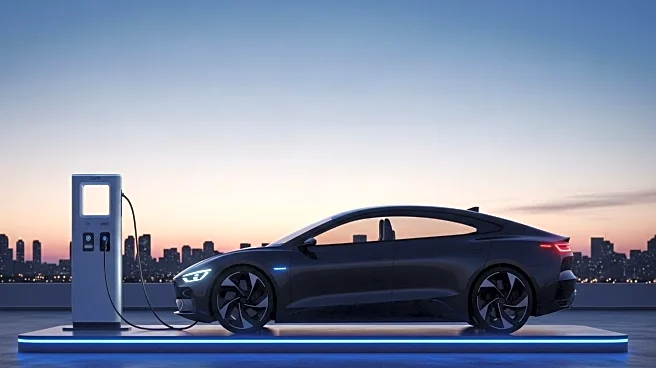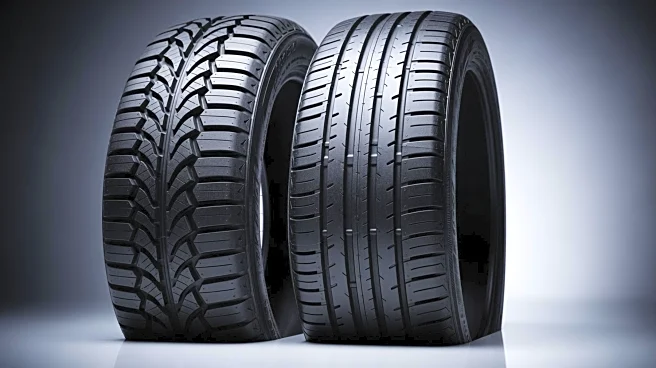What is the story about?
What's Happening?
BMW is launching its Neue Klasse platform, aiming to address high production costs and scalability issues in the electric vehicle (EV) market. The platform is expected to reduce manufacturing costs by 10% and powertrain costs by 30% through modular design and in-house production of key components, such as silicon carbide semiconductors. This initiative is part of BMW's strategy to reclaim profitability and market leadership, competing against Tesla and Chinese EV manufacturers like BYD. The platform features an 800V architecture, enabling 400kW fast charging and an 800km range, which reduces lifetime ownership costs for consumers.
Why It's Important?
The Neue Klasse platform represents a significant strategic move for BMW in the competitive EV market. By focusing on cost efficiency and technological innovation, BMW aims to enhance its market position against competitors like Tesla and BYD, who have dominated the sector. The platform's emphasis on software-defined vehicles and advanced automation features positions BMW to leverage its brand equity for premium differentiation. This approach could potentially stabilize BMW's EBIT margins and redefine competitive dynamics in the global EV market, offering a path to increased profitability.
What's Next?
BMW plans to anchor 40 new or updated models by 2027, leveraging the Neue Klasse platform to capitalize on premium EV demand. The company forecasts an increase in free cash flow from €5 billion in 2024 to €6-7 billion by 2026-2027, as investment peaks taper. This trajectory suggests a transition from capital-intensive R&D to scalable production, aiming for long-term profitability. BMW's focus on premium models and software monetization could further insulate its margins from price wars, positioning it to capture market share in high-margin segments.
Beyond the Headlines
BMW's strategy mirrors Apple's approach in consumer electronics, prioritizing user experience and brand loyalty over price competition. The integration of vertical control and regional adaptability through localized battery assembly aligns with broader industry trends, differentiating BMW in the EV market. The platform's technological advancements, such as increased energy density and charging efficiency, are critical in countering Chinese EVs, which have historically undercut Western competitors on price.
















